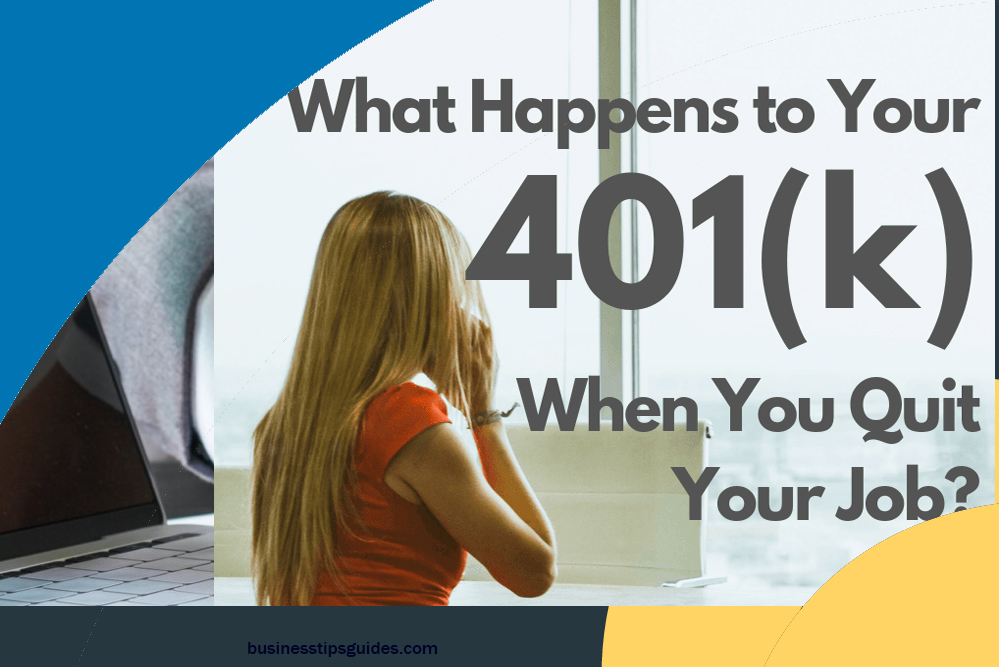If you have a 401(k) plan with your old employer, you can keep your contributions after leaving your job. However, you must make sure that you have contributed more than $5,000 in total. In that case, you can either withdraw the money or roll it over to a new 401(k) account. Either way, you should carefully analyze your situation and talk to your tax professional.
What Happens to Your 401k When You Quit?
You have many options when it comes to your 401(k) account. You can leave it in the old account, or take out the money and roll it over into a new account. It’s important to weigh the pros and cons of each option, and consult with a tax professional for specific advice.
The first thing you need to do is evaluate what will happen to your 401(k) account once you leave your old employer. If your balance is under five thousand dollars, the former employer may force you to cash out. This can result in missing out on up to 90 days of contributions and matching funds.
If you have more than $5,000 in your 401(k), you can leave it alone when you leave your job. However, it is best to check whether your new employer offers a 401(k) plan and whether you can rollover your money. Many employers require that you work for a certain number of months or years before they will allow you to roll over your savings to your new employer’s plan.
While some employers automatically close 401(k) accounts when you quit, others allow you to cash out the account balance before you leave. However, this is usually the worst option. The best option is direct rollover. If you choose to cash out, you can be charged a 10% early withdrawal penalty and pay taxes on the entire balance.
Is It Difficult to Cash Out a 401K When You Quit a Job?
In tough economic times, it can be tempting to cash out your 401K. However, it can be very expensive. Depending on the state you live in, you can end up paying more than $1,000 in income taxes. Moreover, you may be subject to an early withdrawal penalty if you take your money out before the age of 55.
While it is not difficult to cash out a 401K when you quit a job, it is important to keep in mind that you will have to pay taxes on the money you withdraw and a 10% early withdrawal penalty. You also can’t put the money back in the 401(k) until you are 59 1/2. However, cashing out your 401K when you quit a job may be necessary if you’re facing financial hardship. You may not have the time or desire to roll it over into a new plan.
There are different rules for different types of 401ks. Some require you to leave the money with your former employer, while others require you to cash out the money. In any case, it is important to carefully analyze your situation and consult with a tax advisor.
If you are leaving a job or changing jobs, the best way to take advantage of your 401(k) plan is to transfer the money to your new employer’s plan. The transfer is an automatic process, but it may take up to three months. In that time, you could miss out on up to 30 days of contributions and matching funds.
How to Cash Out a 401K After Quitting a Job
If you have a 401K plan, you have four basic options for cashing out your money when you quit your job. You can either leave the money in the old account, roll it over to another employer’s plan, or cash it out. If you choose to cash out, be sure to leave enough time for the 401K plan to kick in. This will help avoid paying extra taxes on the money you withdraw.
Another option is to take your funds and invest them for a longer time. However, it is generally a bad idea to cash out your 401K early. This way, you’re robbing your future self of the growth potential in those investments.
The IRS doesn’t suspend the rules on early withdrawal when you quit a job. However, you have 60 days to put the money into another qualifying retirement account before you start receiving the money. Early withdrawals are subject to taxes and penalties, so you should consider your options carefully.
In addition to paying taxes, you’ll also have to pay early withdrawal penalties if you’re younger than 59 1/2. Another disadvantage is that you can’t put the money back in the 401K if you’re younger than 59. If you’re facing financial hardship, you may need to cash out your 401K in order to pay for your expenses. Unless you’re in retirement, you may not want to roll your 401K into a new plan after you quit your job.

